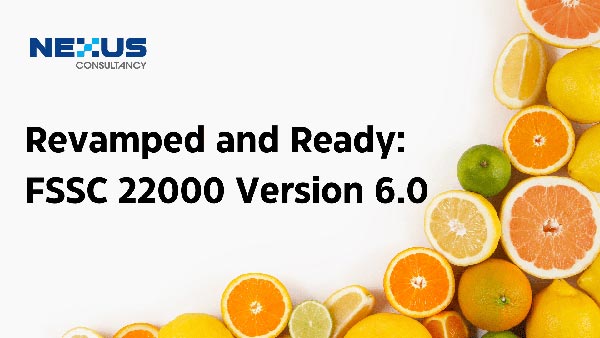FSSC 22000/ISO 22000/BRCGS/HACCP Food Safety Management Systems
Malaysia ISO Consultant
What is FSSC 22000?
FSSC 22000 represents a food safety certification framework based on the globally acknowledged ISO 22000 standard and complemented by technical standards in the ISO/TS 22002 series.
Incorporating ISO 22000 and sector-specific Pre-Requisite Programs (PRPs), FSSC 22000 introduces additional criteria to assist organizations in mitigating risks across various domains, encompassing food fraud, food defense, food safety, quality culture, quality control, allergen management, and environmental monitoring initiatives. The latest iteration of this scheme also introduces stipulations concerning food loss and waste, enabling companies to fulfill their commitments under the United Nations Sustainable Development Goals (UN SDGs).
FSSC 22000 is tailored to the food, feed, and packaging manufacturing sectors, as well as storage and transportation, catering, and retail/wholesale segments. While the initial versions of FSSC 22000 exclusively applied to food manufacturers, the current version extends its reach to encompass additional facets of the supply chain and is officially endorsed by the Global Food Safety Initiative (GFSI).
What is ISO 22000:2018?
The ISO 22000 food safety management standard establishes precise criteria for a food safety management system, empowering you to consistently deliver products and services that align with customer expectations and adhere to legal and regulatory requirements.
ISO 22000’s scope extends to all organizations involved, either directly or indirectly, in the food value chain. The standard ensures food safety throughout the entire supply chain, based on these universally recognized core elements:
- HACCP (Hazard Analysis & Critical Control Points) Principles: This foundational methodology aids in the design of safe production processes tailored to each individual organization.
- System Management: Efficiently managing the interaction between the system’s components guarantees the system’s overall efficiency and effectiveness.
- Prerequisite Programs: These include Good Manufacturing Practices, Good Hygiene Practices, and Good Agricultural Practices etc. These programs form the bedrock upon which a HACCP system is constructed.
What is BRCGS Food Safety?
BRCGS is a prominent global brand that instills trust in the supply chain, offering a range of standards that, when certified, serve as a testament to food quality, safety, and responsible practices. Developed in collaboration with industry experts, BRCGS Food Safety offers a structured approach for overseeing product safety, integrity, legality, and quality, along with the operational controls necessary to meet these standards within the food and food ingredient manufacturing, processing, and packaging sector.
What is HACCP?
HACCP outlines the principles defining the requirements for effective control of food safety. The HACCP food safety management system helps organizations focus on the hazards that affect food safety and systematically identify them by setting up critical control limits at critical control points during the food production process.
The 7 principles of the HACCP system set the basis for the requirements for the application of HACCP, which are:
- Conduct a hazard analysis & identify control measures.
- Determine the Critical Control Points (CCPs).
- Establish a system to monitor control of CCPs.
- Establish validated critical limits.
- Establish the corrective actions to be taken when monitoring indicates a deviation from a critical limit at a CCP has occurred.
- Validate the HACCP plan and then establish procedures for verification to confirm that the HACCP system is working as intended.
- Establish documentation concerning all procedures and records appropriate to these principles and their application.
Benefits of Food Safety Management System
- Enhanced food safety at all stages of the food supply chain.
- Compliance with regulatory requirements.
- Global market access.
- Enhanced customer confidence, brand reputation and customer trust.
- Improved risk management.
- Operational efficiency with improved processes, reduced waste, and cost savings.
Revamped and Ready: FSSC 22000 Version 6.0
Further Reading
How Can Nexus Consultancy Help
Initial Assessment and Understanding
Meet with business leaders and their team to understand their business goals, current practices, and desired ISO standards.
Identify the organization’s needs, expectations, and specific requirements.
PLAN - Customization and Planning
Develop a tailored plan based on the initial assessment to meet the organization's specific needs and objectives.
Determine the ISO implementation scope, considering departments, timeframes, and resources.
Collaborate with your team to establish an implementation schedule and timelines.
DO - Gap Analysis and System Establishment
Conduct a gap analysis of existing processes and systems to identify gaps between current state and ISO compliance.
Develop a comprehensive documentation framework aligned with ISO standards and tailored to the organization’s specific needs.
Support your team in creating or revising policies and procedures to address identified gaps.
CHECK - Training and Implementation
Collaborate with the organization’s team to implement identified changes and improvements from the gap analysis.
Provide training to raise ISO standards awareness, emphasize compliance importance, and educate employees on new processes.
Support the organization’s team in implementing effective internal audit program to monitor progress and ensure ongoing compliance.
ACT - Pre-certification and Audit Support
Conduct pre-certification audits to assess the organization’s ISO readiness.
Carry out improvements and corrective actions, where required.
Assist in selecting a reputable certification body and guide preparation for the certification audit.
Provide post-certification audit support and helping the organization demonstrate compliance.
Continual Improvement and Follow-up
Foster a culture of continual improvement by monitoring ISO implementation effectiveness.
Conduct periodic reviews and audits to identify areas for refinement and ensure ongoing ISO compliance.
Offer ongoing support for post-certification challenges and ISO certification maintenance.
Ready to take your business to new heights?
Reach out to us and let's start turning your vision into reality.
Get ISO Tips & News From Nexus Consultancy
Sign up to Nexus Consultancy e-mail newsletter and stay up to date with useful ISO tips, news, special offers and more.
